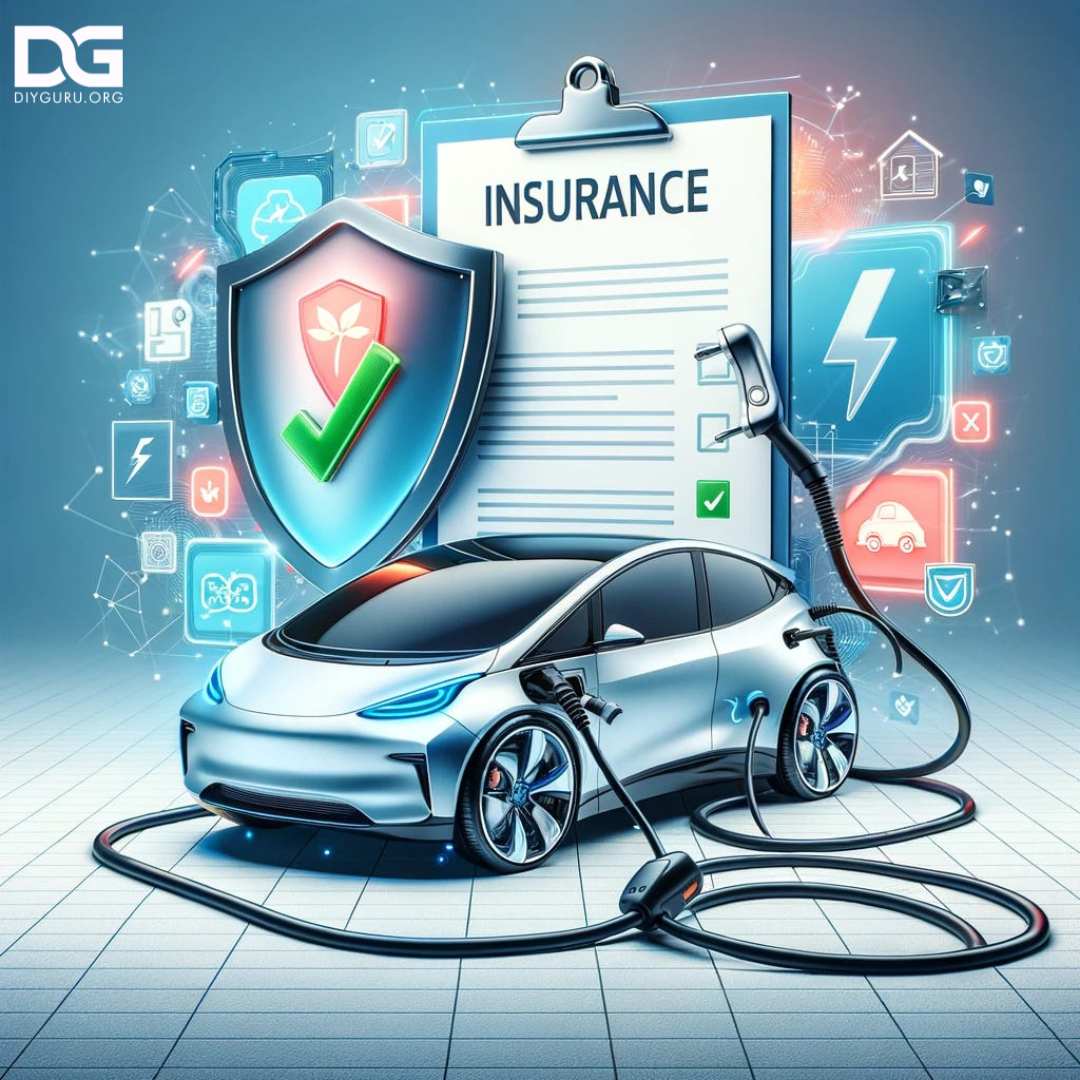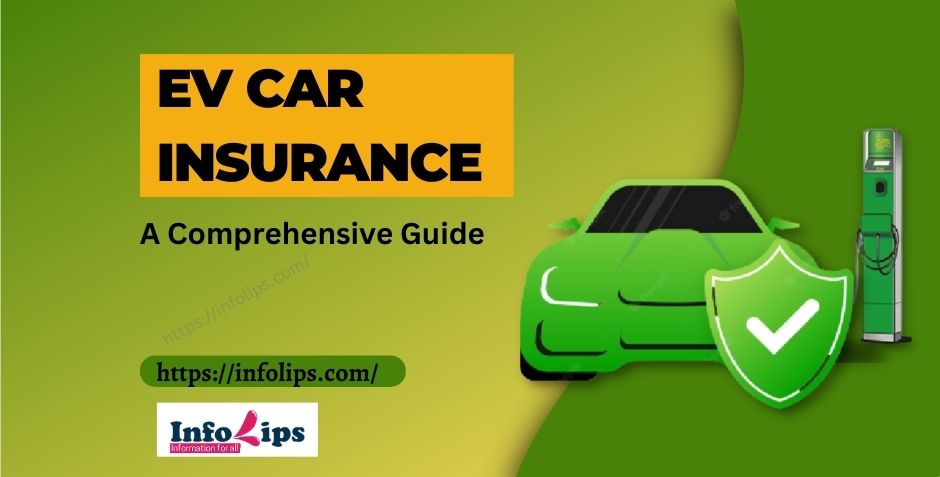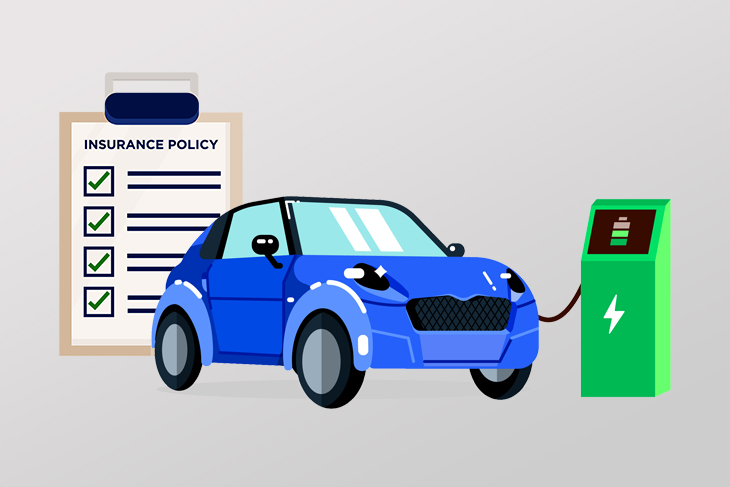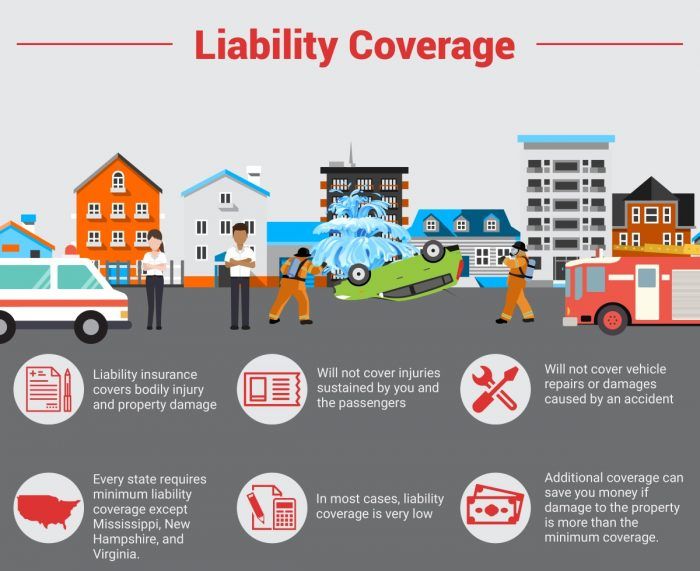Car Insurance Coverage for Electric Vehicles: A Comprehensive Guide
Exploring the world of car insurance coverage for electric vehicles, this guide dives into the unique considerations and options available for owners. As electric vehicles gain traction in the automotive industry, understanding the intricacies of insuring them becomes crucial for every driver.
From specialized coverage for battery replacement to factors influencing insurance rates, this overview will equip you with the knowledge needed to navigate the realm of car insurance for electric vehicles.
Introduction to Electric Vehicles (EVs) and Car Insurance

Electric vehicles (EVs) are automobiles that run on electricity stored in rechargeable batteries, rather than gasoline or diesel. As the world shifts towards sustainable transportation, EVs have gained popularity in the automotive industry due to their environmentally friendly nature and lower operating costs.
When it comes to car insurance for electric vehicles, it is essential to understand that insuring an EV differs from insuring a traditional gas-powered car. The unique features and components of EVs, such as their high-voltage battery systems and advanced technology, require specialized coverage to protect against potential risks.
Unique Considerations for Insuring Electric Vehicles
- Specialized Coverage: Insuring an electric vehicle involves unique coverage options tailored to the specific needs of EV owners, such as coverage for battery damage, charging equipment, and electric components.
- Repair and Replacement Costs: Due to the high-tech components and specialized repair requirements of EVs, insurance policies for electric vehicles often include coverage for expensive repair and replacement costs.
- Range Anxiety: Insurers may offer coverage options to address concerns related to range anxiety, ensuring that EV owners have the necessary support in case of unexpected battery depletion.
- Incentives and Discounts: Some insurance providers offer incentives and discounts for electric vehicle owners, encouraging the adoption of eco-friendly transportation options.
Types of Car Insurance Coverage for Electric Vehicles

When it comes to insuring electric vehicles (EVs), there are several types of car insurance coverage options available that cater specifically to the unique needs of these eco-friendly cars. Let's delve into the different types of car insurance coverage tailored for electric vehicles and compare them with coverage options for traditional cars.
Liability Coverage
- Liability coverage is essential for all vehicles, including electric cars. This coverage helps pay for damages or injuries caused to others in an accident where you are at fault.
- It is mandatory in most states and provides financial protection in case you are legally responsible for causing an accident.
Comprehensive Coverage
- Comprehensive coverage for electric vehicles helps cover damages not caused by a collision, such as theft, vandalism, or weather-related incidents.
- It is particularly important for EVs due to the expensive battery replacement costs.
Collision Coverage
- Collision coverage pays for damages to your electric vehicle resulting from a collision with another vehicle or object.
- Given the high repair costs associated with EVs, collision coverage is crucial to protect your investment.
Uninsured/Underinsured Motorist Coverage
- This type of coverage helps pay for damages if you are involved in an accident with a driver who is either uninsured or underinsured.
- With the increasing number of EVs on the road, this coverage can provide added protection against financially irresponsible drivers.
Specific Coverage Options for Electric Vehicles
- Coverage for battery replacement: Since the battery is a significant and costly component of an electric vehicle, having coverage for battery replacement can help offset the expenses in case of damage or malfunction.
- Coverage for charging equipment: As the infrastructure for charging stations continues to expand, having coverage for your EV's charging equipment can be beneficial in case of theft or damage.
Comparison with Traditional Cars Coverage
- Electric vehicles often have higher upfront costs and unique components like batteries, which can impact insurance premiums compared to traditional cars.
- While some coverage options may be similar for both EVs and traditional cars, the specific needs and risks associated with electric vehicles require tailored insurance solutions.
Factors Influencing Car Insurance Rates for Electric Vehicles
When it comes to determining insurance rates for electric vehicles, insurers take into account several key factors that can impact the cost of coverage. Factors such as the make and model of the electric vehicle, driving habits, access to charging infrastructure, battery capacity, and safety features all play a role in determining insurance premiums.
Make and Model of the Electric Vehicle
The make and model of the electric vehicle can greatly influence insurance rates. More expensive or high-performance electric vehicles may come with higher insurance premiums due to the cost of repairs or replacement parts. On the other hand, more affordable electric vehicles with lower repair costs may result in lower insurance rates.
Driving Habits
Insurers also consider the driving habits of the policyholder when determining insurance rates for electric vehicles. Factors such as the number of miles driven, frequency of use, and driving history can impact the likelihood of accidents and therefore affect insurance premiums.
Charging Infrastructure Access
Access to charging infrastructure is another factor that insurers take into consideration. Policyholders with easy access to charging stations may be seen as lower risk compared to those who have limited charging options. This can potentially result in lower insurance rates for electric vehicle owners with convenient charging solutions.
Battery Capacity
The battery capacity of an electric vehicle can also influence insurance rates. Electric vehicles with larger battery capacities may have higher replacement costs, leading to higher insurance premiums. Insurers consider the potential costs associated with replacing or repairing the battery when determining coverage rates.
Safety Features and Technologies
Safety features and technologies in electric vehicles can play a significant role in insurance rates. Vehicles equipped with advanced safety systems such as collision avoidance technology, lane departure warnings, and automatic emergency braking may qualify for discounts on insurance premiums.
These features can help reduce the risk of accidents and minimize potential damages, making them attractive to insurers.
Claims Process and Coverage for Electric Vehicles
When it comes to claims process and coverage for electric vehicles, there are specific considerations that differ from conventional cars. In case of accidents, theft, or damage, the process and coverage may vary due to the unique components and technology of electric vehicles.
Repairs and Battery Replacement
In the event of an accident, insurance coverage for electric vehicles typically includes repairs to the vehicle's electric components, as well as the cost of replacing the battery if damaged. The insurance company may work with specialized electric vehicle technicians to ensure that repairs are done correctly and safely.
Charging Equipment
If the charging equipment for the electric vehicle is damaged due to an accident or theft, insurance coverage may also include the cost of repairing or replacing the charging infrastructure. This is crucial for electric vehicle owners to continue charging their vehicles at home or at charging stations.
Differences in Coverage
One scenario where coverage for electric vehicles may differ from conventional cars is in the cost of battery replacement. Electric vehicle batteries are a significant expense, and insurance companies may have specific policies regarding coverage for battery replacement depending on the age and condition of the battery.
Additionally, coverage for specialized electric vehicle components and technology may be included in insurance policies for electric vehicles but not for conventional cars.
Epilogue

In conclusion, ensuring adequate insurance coverage for your electric vehicle is not just a legal requirement but also a practical necessity. With tailored coverage options and factors influencing insurance rates, staying informed and proactive is key to protecting your investment in the world of electric vehicles.
FAQ Corner
What specific coverage options are available for electric vehicles?
Insurance for electric vehicles can include coverage for battery replacement, charging equipment, and specialized repairs unique to these vehicles.
How do factors like driving habits and battery capacity influence insurance rates for electric vehicles?
Insurers consider factors like driving habits, battery capacity, and access to charging infrastructure when determining insurance rates for electric vehicles.
Are there differences in the claims process for electric vehicles compared to traditional cars?
The claims process for electric vehicles may involve considerations for repairs, battery replacement, and charging equipment, which differ from conventional car claims.




